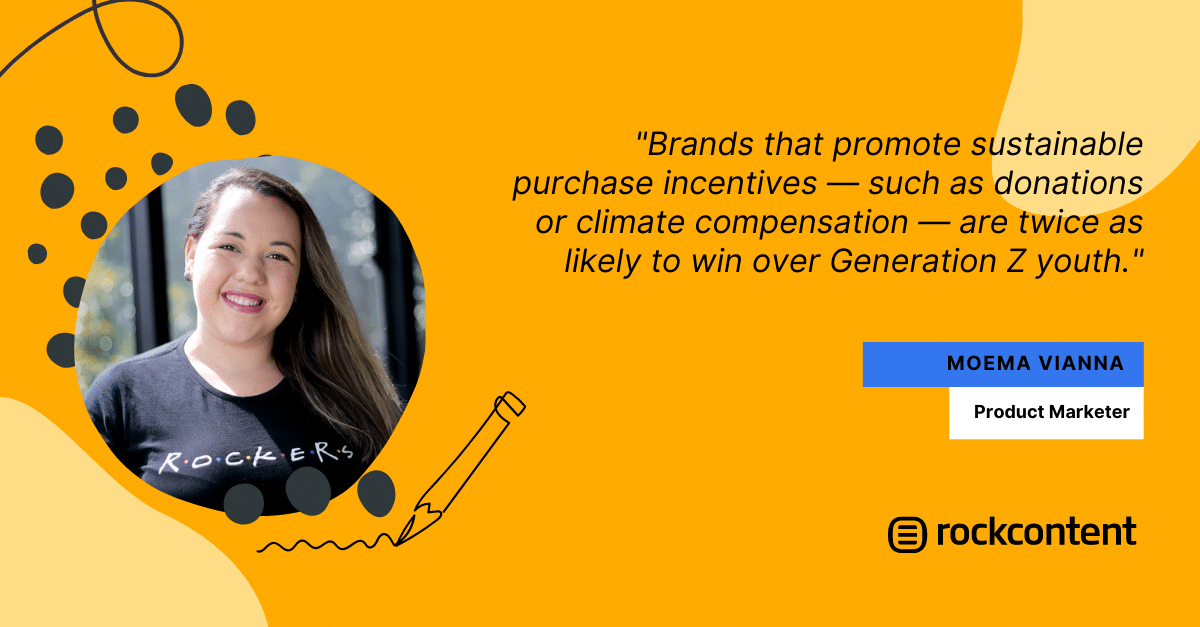No products in the cart.
Content Marketing
How can we attain this golden viewers?
Last Black Friday, Generation Z (9-24 years old) proved that they are spending more money than any other generation before. But at the same time, the data show that Brands lose opportunities to these young people.
Would you like to know why and how not to lose these sales? Follow this post.
According to the latest survey by the UK-made Student Beans platform, they are traditional Black Friday Marketing is no longer enough to reach Gen Z audiences. Actually, 63% of consumers look for brands that use sustainable practices and offer conscientious shopping incentives in addition to the already known discounts.
ConsciouZ generation
That year, younger people spent an average of £ 298 ($ 394) on Black Friday, while their parents spent £ 251 ($ 332) and grandparents spent £ 206 ($ 272). At the same time it is estimated that 9 out of 10 young Britons expect you to actively contribute to charity when purchasing a product.
After all, young Generation Z shoppers who bought discounted items from companies that “returned” in some way (through donations or climate action) were 41% happier with their Black Friday purchases.
But what then happens to traditional Black Friday marketing (and all known shopping dates)?
Is Traditional Marketing Dead?
The immediate answer is no. But as you’ve already learned (I hope), in Digital marketing You always have to tailor your message to the audience you’re trying to reach, right? If your audience profile changes, it’s time to review some of the best practices.
We already know how important topics such as conscientious consumption, sustainable action, climate compensation, etc. are for Generation Z. To do this effectively golden audiencewhat you need to do is include incentives and give something back in your marketing actions. But how?
Some brands are already “awakened”, others are already making great strides. We can mention brands like Harvey Nichols and Tommy Hilfigerthat help combat climate change by reducing waste and emissions. It is no accident that they have a legion of passionate buyers.
It is important to emphasize that this is not a fleeting reality. On the contrary: this is the profile of an entire generation. Hence, this is a trend that will stay here. The point is: Not only do you need to focus on conscious marketing, but also on being a sustainable brand with truly sustainable practices. Marketing should therefore be a consequence rather than an immediate action.
And where do you start?
This type of change is structural and needs to be done from the inside out. It is necessary to sensitize employees, managers and suppliers in order to find ways to Promotion of sustainability and solidarity throughout the production chain.
Whether it’s waste reduction, plastic avoidance, emission reduction or the implementation of social projects and solidarity campaigns, it is important to start somewhere.
Benefit from the fact that the biggest economic season of the year lies ahead of us: the Christmas season. How about a Christmas solidarity campaign for children? Donate part of the income within a certain period of time? There are plenty of opportunities and ideas.
Of course, it is possible (and advisable) to take specific actions that are real and can achieve your goals, but once this becomes a culture and value of the company, marketing actions will flow naturally.
Spread the word!
Have you ever heard the phrase “be the change you want to see in the world”? Generation Z youth are willing to change and want to consume from brands that are also committed to this cause.
It is evident that consumer expectations and demands need to be changed and adjusted. But what is not seen is not remembered … and that also applies to the sustainable and conscientious action of your company.
According to the same study by Student Beans Brands that promote sustainable purchase incentives – such as donations or climate compensation – are twice as likely to attract young people from Generation Z.
And it doesn’t hurt to remember that these aren’t just marketing campaigns. The urgency of all these issues is real: solidarity, sustainability and climate compensation are issues that are discussed worldwide. Recognizing and implementing these practices is an essential part of the success of modern businesses.
Incorporating and prioritizing these issues in your company is not a choice, it is a necessity: to sell and maintain the business and to contribute to this and future generations. Together, consumers and brands can make the world a better place. Just as your company helps society, so will society help your company reach the ideal customer.

